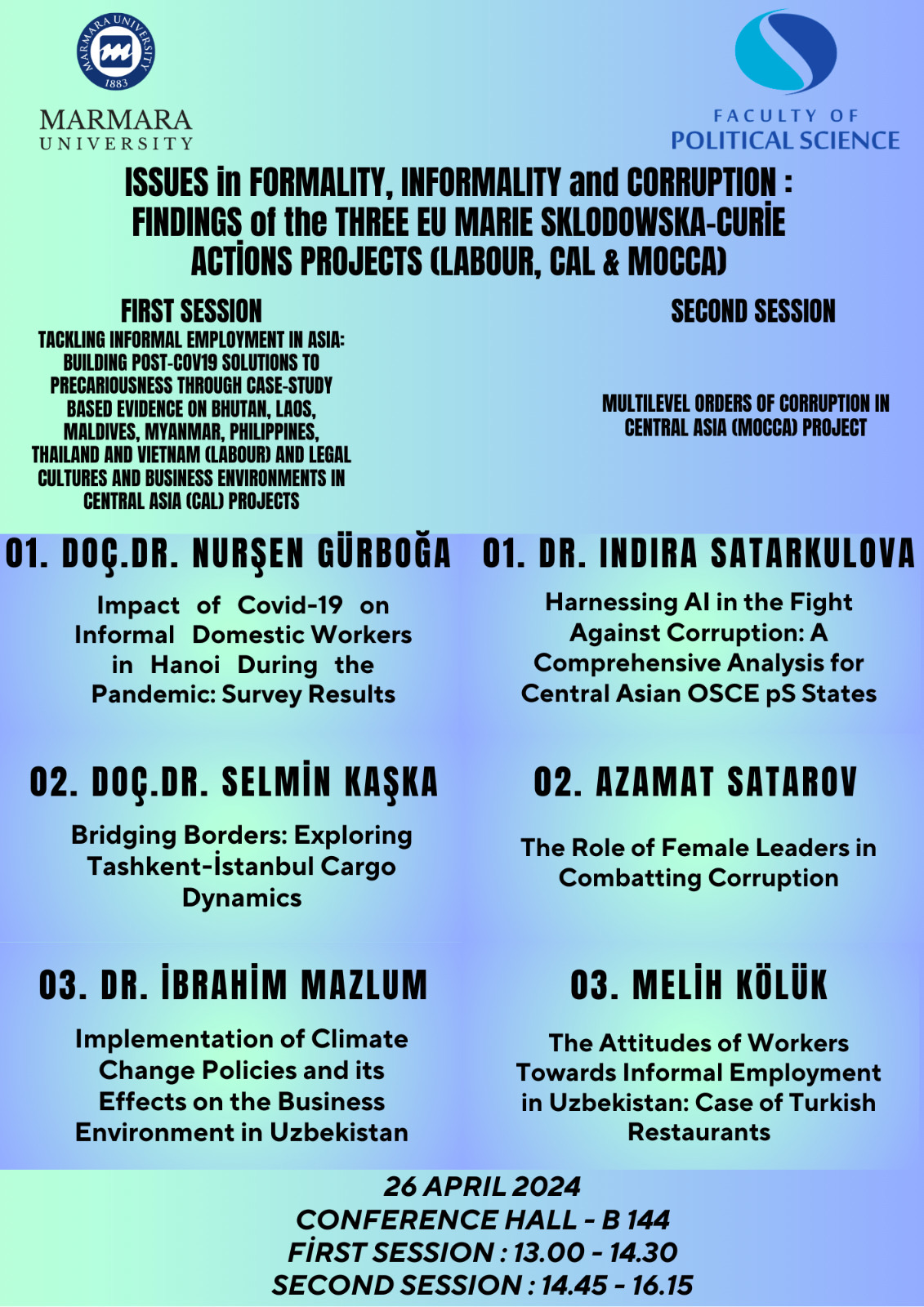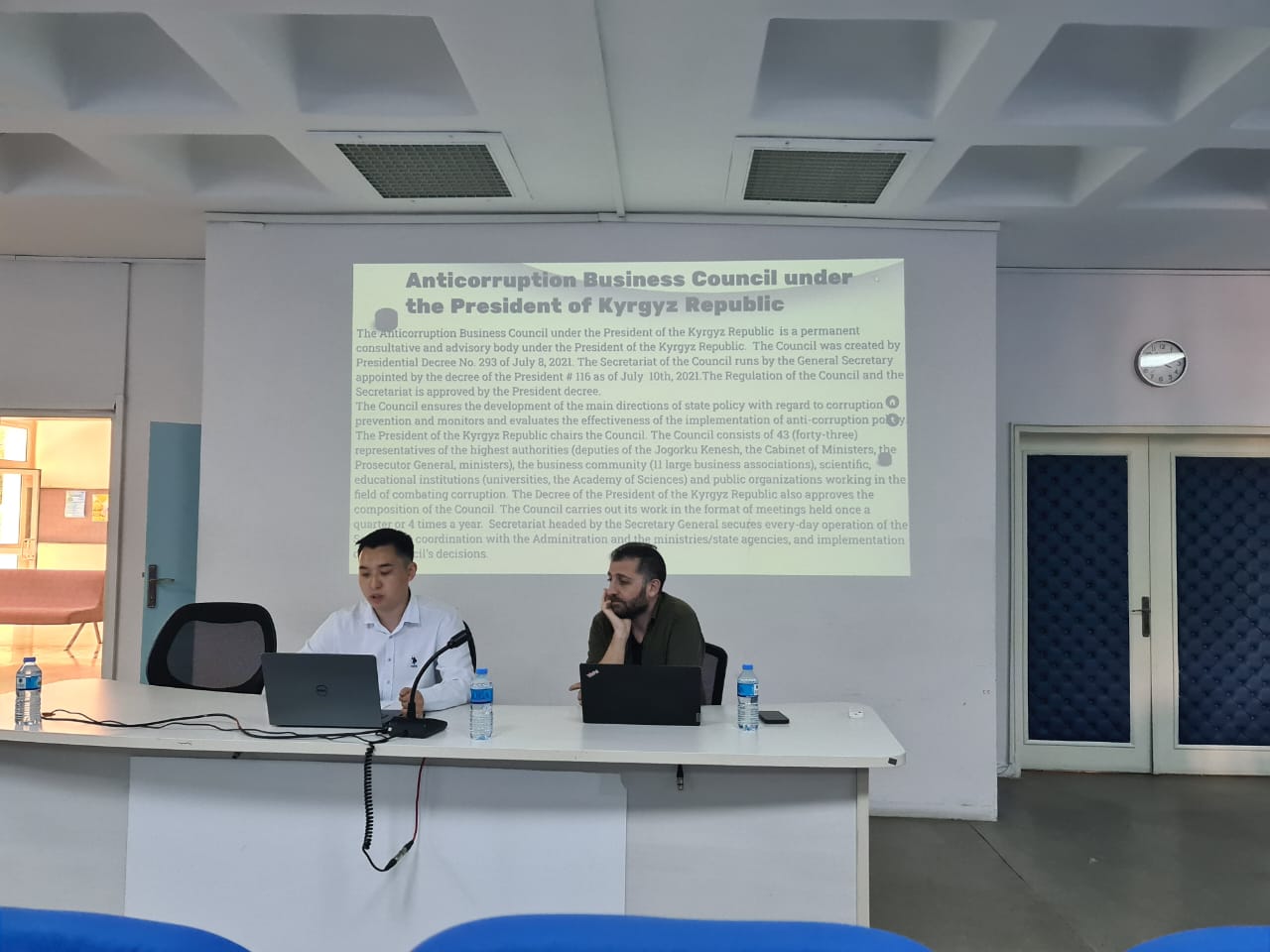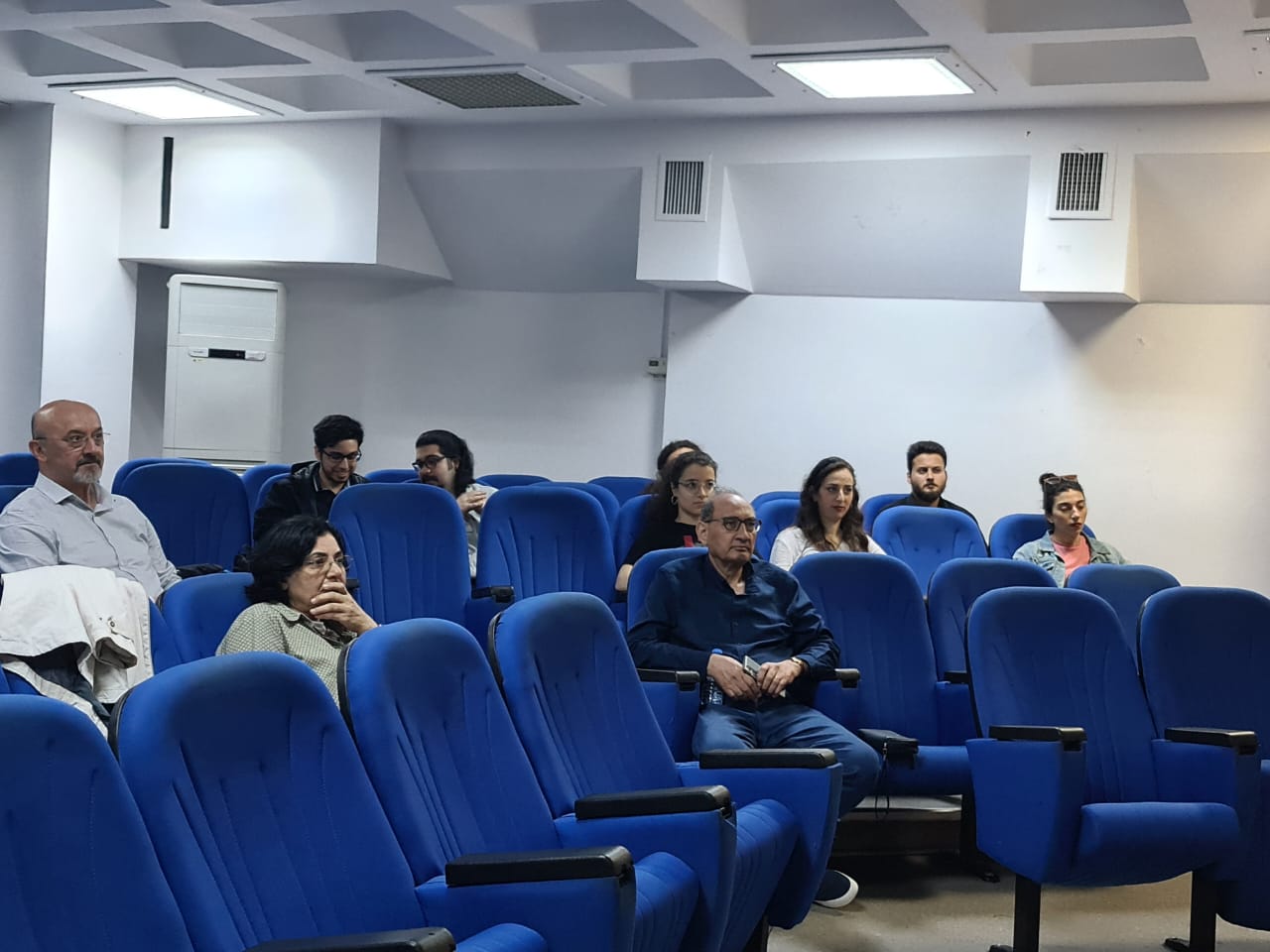By Azamat Satarov, researcher, research-expert of Anticorruption Business Council under the President of The Kyrgyz Republic

<https://world-study.ua/education/turkey/universities/universitet-marmara/>
Greetings, today I would like to share my research experience within the walls of Marmara University—one of the oldest and largest universities in Turkey, where approximately 2800-faculty members work and about 80,000 students study, located in the city of Istanbul. Marmara University is the multilingual university in Turkey, with teaching conducted in four languages: Turkish, English, German, and French.
My secondment began on March 1 2024, and by March 4, I had the opportunity to visit the vast and very beautiful Göztepe Campus and meet the staff of the Department of Political Science and International Relations. I was kindly shown around the Göztepe Campus, which includes a large number of buildings designed to provide quality education at the highest level with all amenities such as libraries, conference halls, classrooms, and cafes. It is also worth noting that a large part of the campus area is made up of green spaces.

On April 26, 2024, I participated in the seminar “Issues in Formality, Informality, and Corruption: Findings of the Three EU Maria Skłodowska-Curie Actions Projects,” organized by Dr. Ibrahim Mazlum and his colleagues. At the seminar, I presented my research topic “The Role of Female Leaders in Combating Corruption.” This seminar was divided into 2 sessions, with 6 speakers participating, each presenting their own research.



I am planning to write my article based on responses I will gather through interviews and an online survey, which I aim to conduct with around 100 people. The questionnaire consists of two parts: one for offline interviews and the other for online interviews. Each type of survey contains 10 questions. For offline interviews, the questions are open-ended, while for online interviews, respondents are offered a choice of four provided answer options.
(https://prezi.com/view/MdiDf49Njnnq4vZpxaVO/)
In addition, on this day, I had the opportunity to have an online meeting with Ms Salomé Flores Sierra Franzoni, Head of the UNODC Information Centre for researching and analyzing transnational threats related to drugs and crime in Tashkent, Uzbekistan. We exchanged our experiences, posed and addressed inquiries, and gained valuable insights into the GRACE Initiative, which provides resources for educating on matters related to corruption, the UNODC publication on gender and corruption titled “The Time is now.” Ms Salome Flores Sierra Franzoni generously shared the resolution of the Conference of State Parties on corruption measurement and the statistical framework for measuring corruption, and acquainted me with UNODC’s efforts in the private sector and corruption prevention.
On May 9, I attended a guest lecture on “Introduction to International Arbitration” with students from the IR Faculty of Marmara University, conducted by Dr. Indira Satarkulova and Professor Necdet Umur Orcan on International Law.
I would like to express my immense gratitude to the staff of Marmara University, particularly to Dr. Ibrahim Mazlum and Research Assistant Mr. Melih Kölük, for their support during my secondment.
I would also like to extend special thanks to the Department of Sociology of Law at Lund University and the project team for their professional approach to organizing the secondment within the framework of the MOCCA project.
